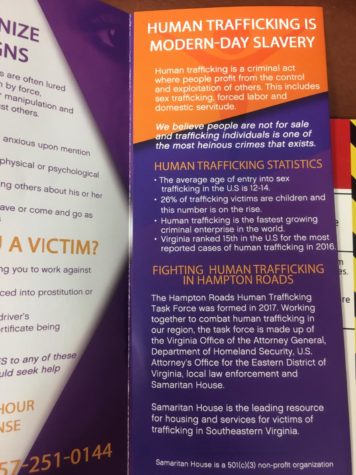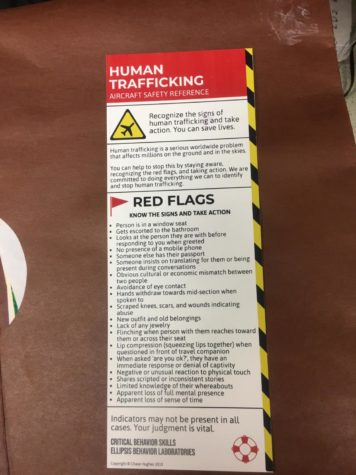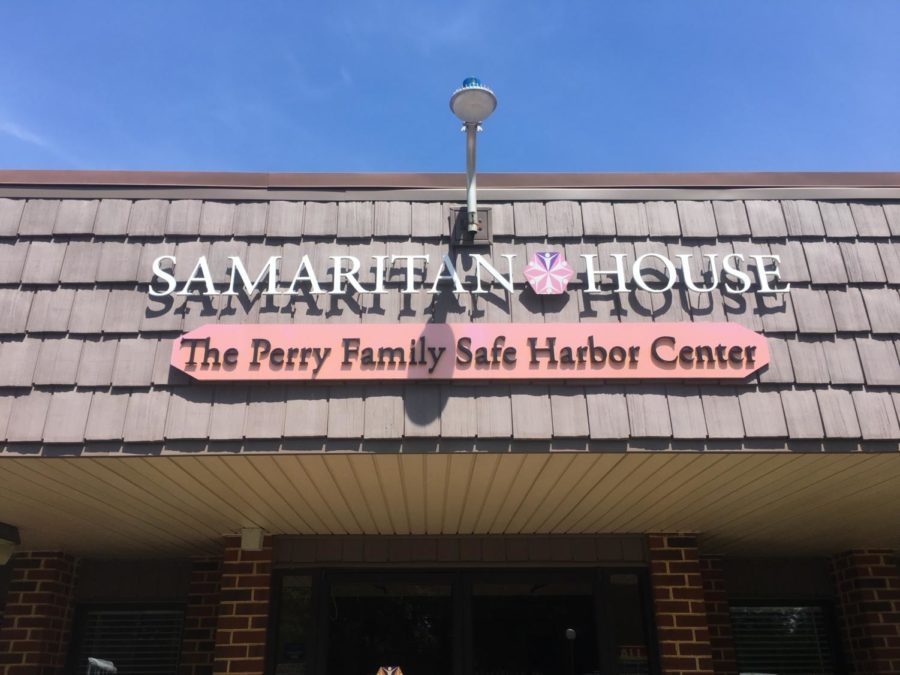The Samaritan House
“Stop the violence. Start the healing.”
The Samaritan House is a safe place for human trafficking survivors to rehabilitate and relax as they start the better journey of their life.
Virginia Beach is one of the biggest tourist attractions on the east coast, offering three miles of oceanfront and a boardwalk with many stores and restaurants. It is also a hotspot for human traffickers trying to recruit their next victim.
Federally funded, the Samaritan House defines human trafficking as force, fraud, or coercion. The two main types of trafficking are sex induced, and labor. Since Virginia Beach is a resort area along with plenty of hotels and tourists, labor trafficking is very prevalent in this area.
“Labor trafficking seems to be swept under the rug,” says Courtney Pierce, who is the anti-trafficking grant coordinator at the Samaritan House. She explained that most people don’t consider the other side of human trafficking, where individuals are working against their will or for little to no pay. Some cases seen in Hampton Roads include forced housekeeping and forced labor in hotels. “I think that it’s something that is even more under the radar.” The Samaritan House was originally created to help homeless individuals along with abused women and children. There are three houses for human trafficking clients with twelve beds total.
Clients who come to the Samaritan House have complex trauma that is addressed and aided in many ways. Emergency housing is offered for up to a year, sometimes longer, depending on the severity of the situation. Court trials and prosecutions are typically long and drawn out, so clients are housed and assisted in many ways. Counseling and substance abuse professionals are paid for and offered to clients. Hygiene, food, and even treatment from a dentist or doctor is available for clients and their dependents. Many of these individuals have been deprived of basic care, so the Samaritan House ensures they are able to connect with health care and education, as well as jobs.
There is a certain stigma that seems to come with being a human trafficking survivor, which makes things difficult to get back to what some would call a “normal life.” In some cases, victims can be charged with prostitution or credit card fraud because they were doing as instructed by their trafficker/pimp. Prosecuting pimps and traffickers takes sufficient evidence, and can be a long process for all parties involved. Unfortunately, for these survivors who are trying to get back on their feet, it can be difficult for people to understand their charges and situations. It can be extremely difficult to explain such traumatic situations to a new place of employment, so the Samaritan House connects with sustainable jobs and certification programs.

The Samaritan House has plenty of brochures and informational pamphlets on human trafficking in Hampton Roads. The Hampton Roads human trafficking task force was created in 2017.
“We’ve had individuals found guilty and charged, awaiting trial, and it can be very hard to be proved. Hard cases to prosecute, a lot of the judges and juries don’t understand human trafficking. Trying to explain, this person wasn’t shackled to the floor, they were still forced to do it. Psychological abuse and threats, if I don’t do this, this will happen to me. Trying to make the public and justice system understand what it looks like, it is challenging,” says Katie Cooper, the Anti-Trafficking and Sexual Assault Supervisor, explaining how not only is the act of human trafficking traumatic abusive and toxic, but the after-math can be a struggle as well.
They also pay for completion of GED and assist with getting them on track to further their education. Clients can be referred to different types of housing after they receive income. The rapid re-housing program focuses on finding the clients their own apartment and creating stability to be able to work and live comfortably.
Yoga, therapy, art class, and addressing the complex trauma are a few of the amazing services offered by the Samaritan House. The goal is to make the clients feel as comfortable as possible.

Airports in the United States are gradually starting to spread the word about signs of human trafficking.
While human trafficking is often perceived as an issue that is not domestic, it is happening in our American towns and cities. Hotlines and social media are working to alert people to say something if they see something. Airports in the United States are beginning to post flyers in bathroom stalls explaining what human trafficking looks like and what people should take note of.




